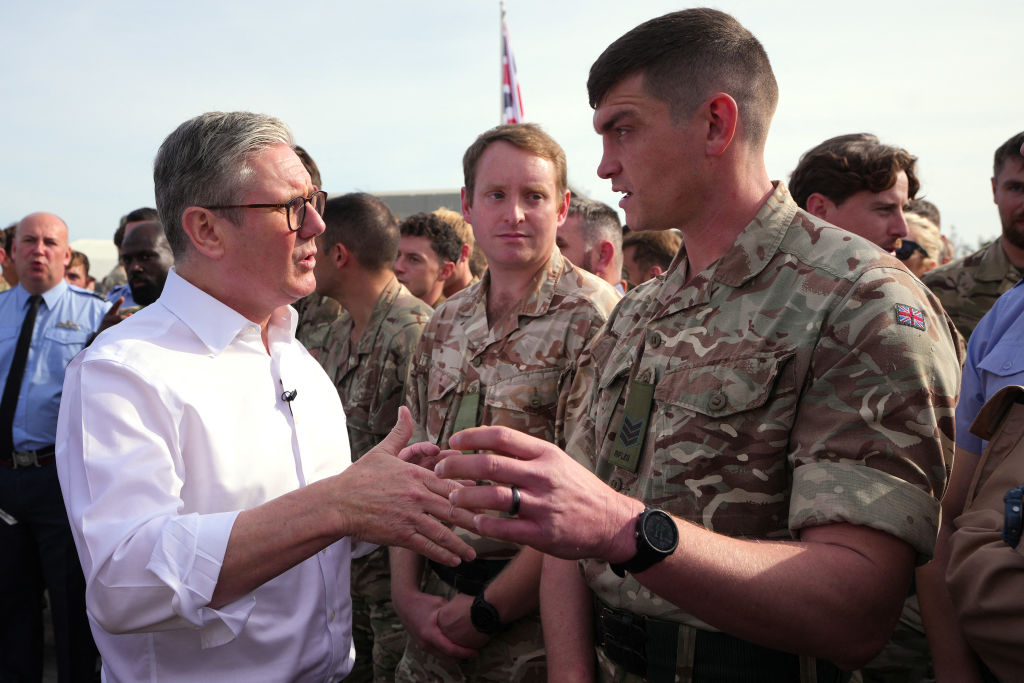As is increasingly common in modern British politics, Keir Starmer’s announcement that he’s prepared to put troops on the ground in Ukraine sounds much more radical than it actually is.
For starters, it absolutely does not mean that we’re about to embark on a Second Crimean War. Britain is simply not materially equipped for such an expedition, with recent reports doubting whether the UK even has a single deployable Army division.
Indeed, we are probably less prepared now than we were a few years ago, as a result of giving so much equipment to Ukraine much faster than we could hope to replace it (the same thing has happened to Germany).
Nor would we likely be psychologically prepared for the reality of a hot war against a peer military. The UK has for decades fought little except counter-insurgency operations; the few campaigns against conventional forces (Yugoslavia, Iraq) were as part of overwhelming NATO (read: US) coalition forces.
The drip-feed of casualties produced by ambushes and Improvised Explosive Devices (IED) in the Middle East bears no resemblance to the costs of a hot war. Back in 2023, I wrote about a report from the US Army War College which estimated that, based on its analysis of the fighting in the Donbas, America could expect to take around 50,000 casualties in about two weeks.
A mid-January YouGov poll found that 58% of Britons supported sending peacekeeping troops to Ukraine. Don’t let that deceive you; it’s very easy to support an intervention before the costs are real. Even the Iraq War commanded public support when Tony Blair committed to it. It is the public’s prerogative to change its mind; it is much less generous about letting politicians do the same.
So, we’re talking about a peacekeeping force, which is a much more sensible proposition. But it relies first upon their being a peace to keep, a peace that Donald Trump is currently trying to negotiate over the head of the government in Kyiv. (It also implies a peace in which Russia retains control of eastern Ukraine.)
Regardless, standing solemn sentinel over the stable door once the horse has bolted is perhaps a suitable strategic role for a military hollowed out by decades of (un)Strategic Defence Reviews and shrinking budgets. But in truth we couldn’t even do that on our own: military chiefs recently warned that Britain could not deploy the 5,000-10,000 troops required.
Successive governments’ commitment to supporting Kyiv is an honorable, if inadequate, reflection of the fact that the UK is (alongside America and Russia) one of the signatories on the original multilateral guarantee of Ukraine’s sovereignty and independence. But Trump’s new posture on Europe is a very painful wake-up call for British politicians, who have for decades refused to back up their international posturing with proper defense investment, preferring instead to write big checks they hope the Americans will cash.
Sadly, there is little sign of it yet. Starmer may be lecturing European leaders about the need to boost military spending, but his government cancelled the Conservatives’ planned £20 billion real-terms increase for defense over the life of this parliament and has not yet come close to making up the cash. Russia is not making the same mistake.











Join the discussion
Join like minded readers that support our journalism by becoming a paid subscriber
To join the discussion in the comments, become a paid subscriber.
Join like minded readers that support our journalism, read unlimited articles and enjoy other subscriber-only benefits.
Subscribe